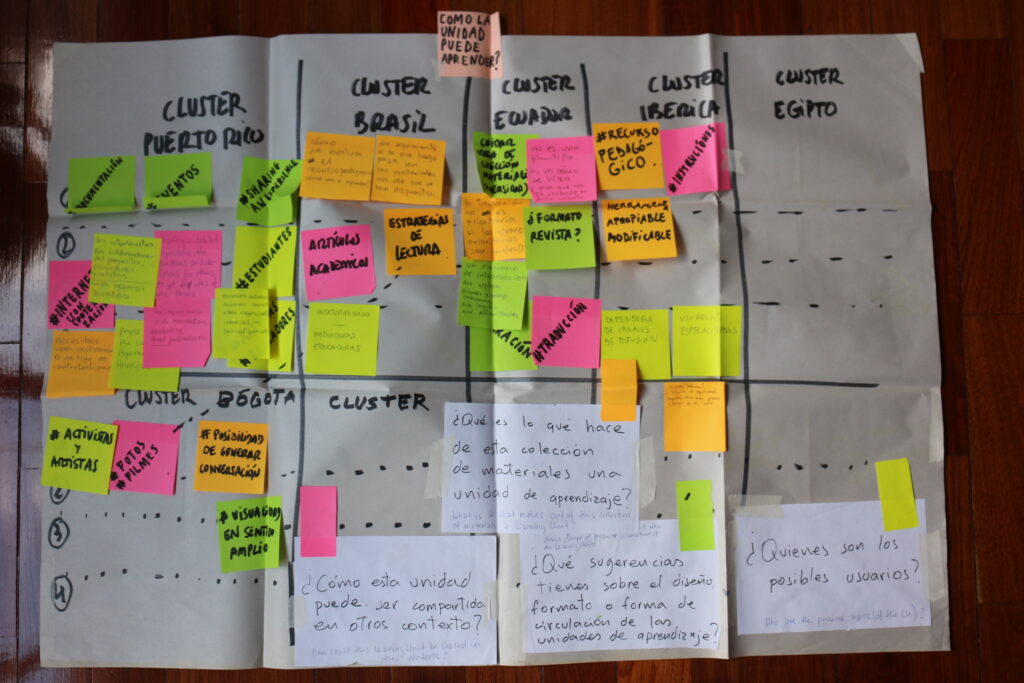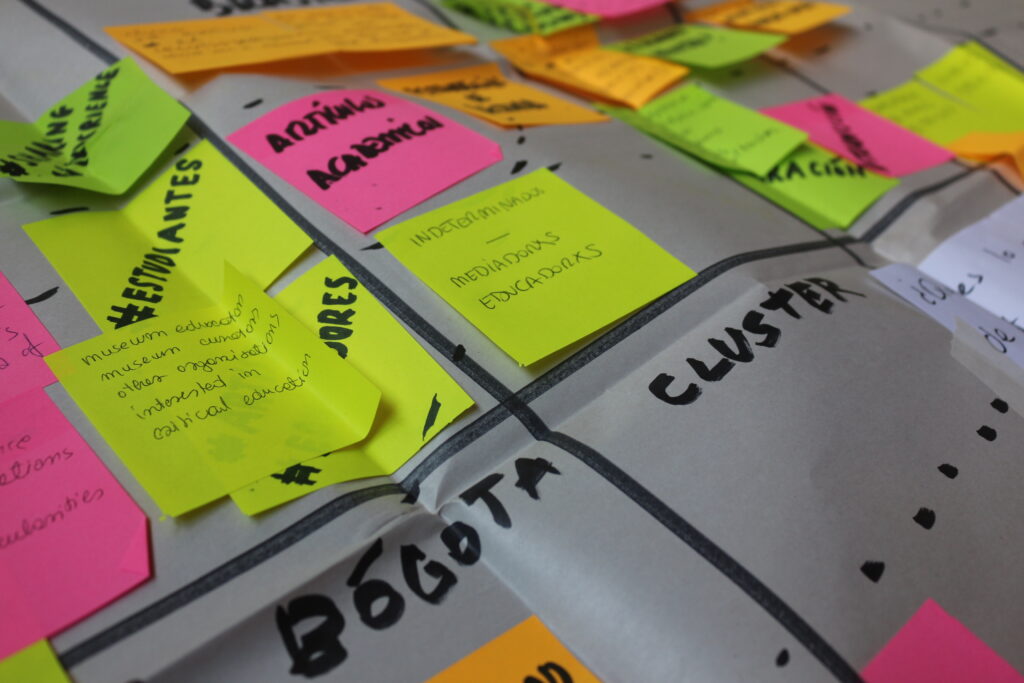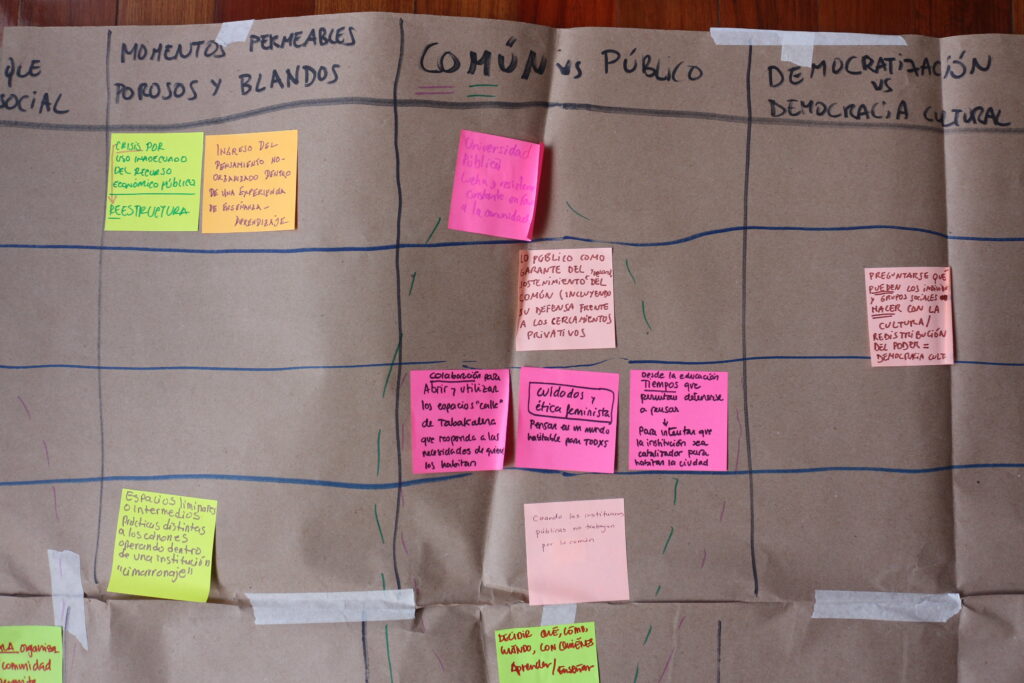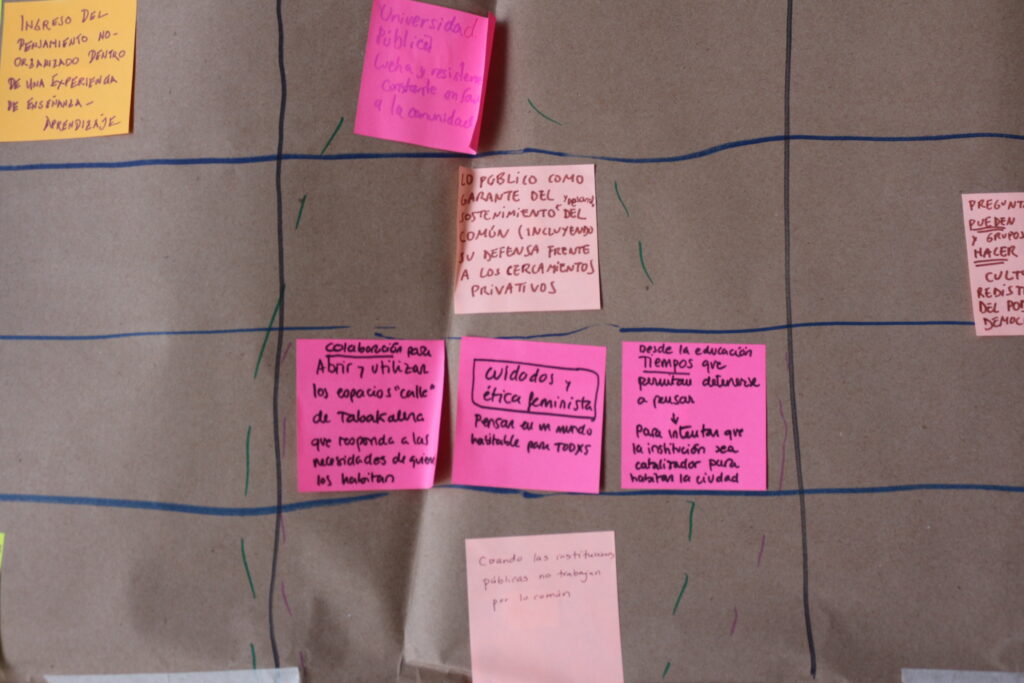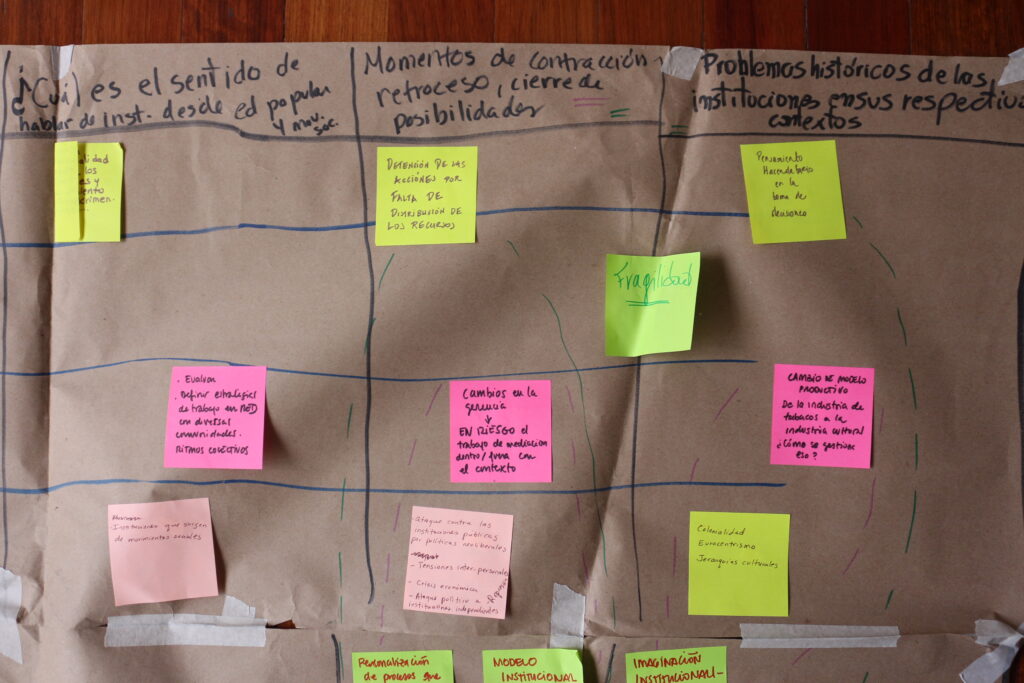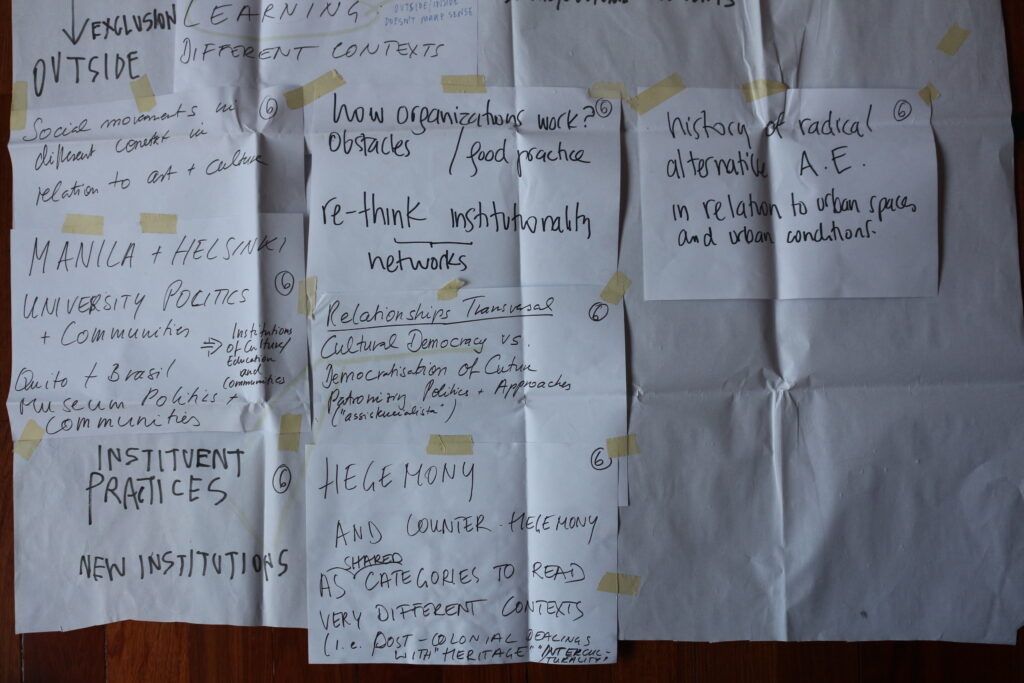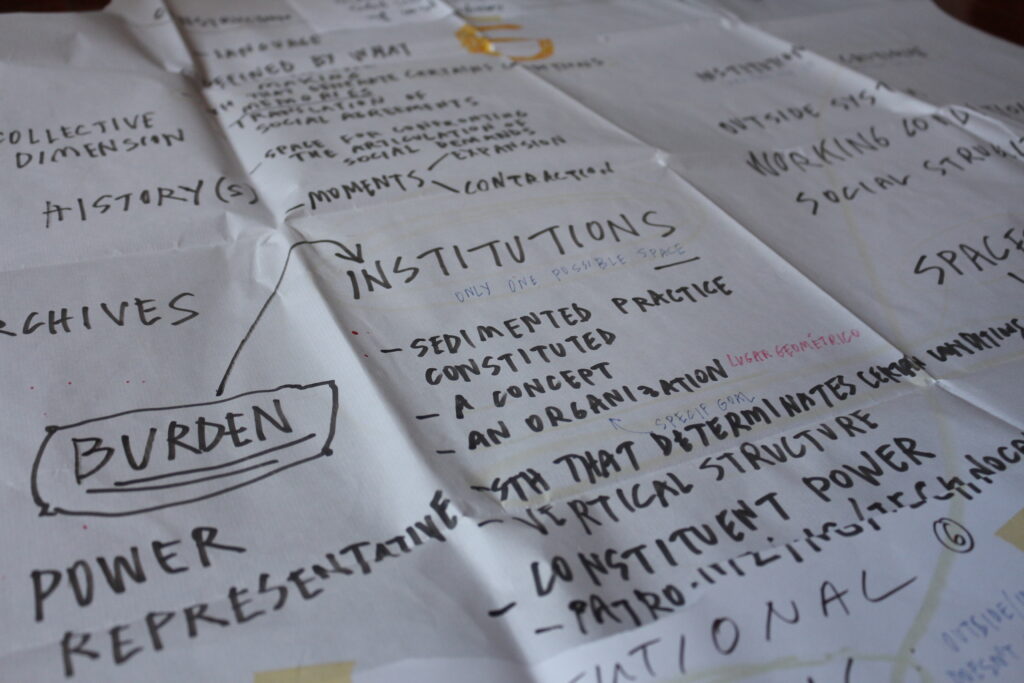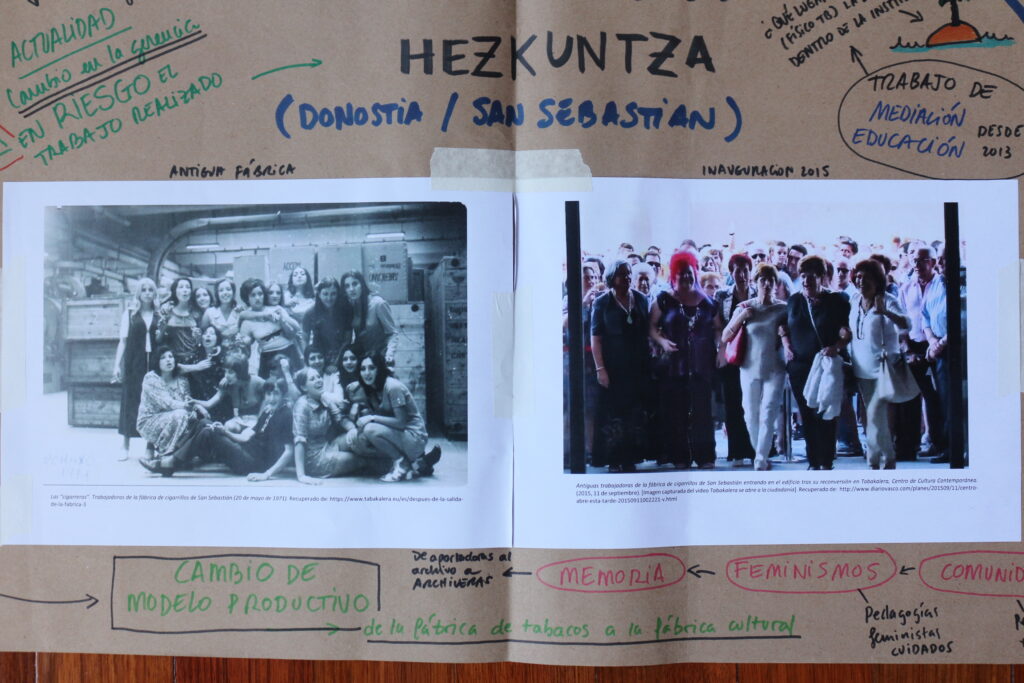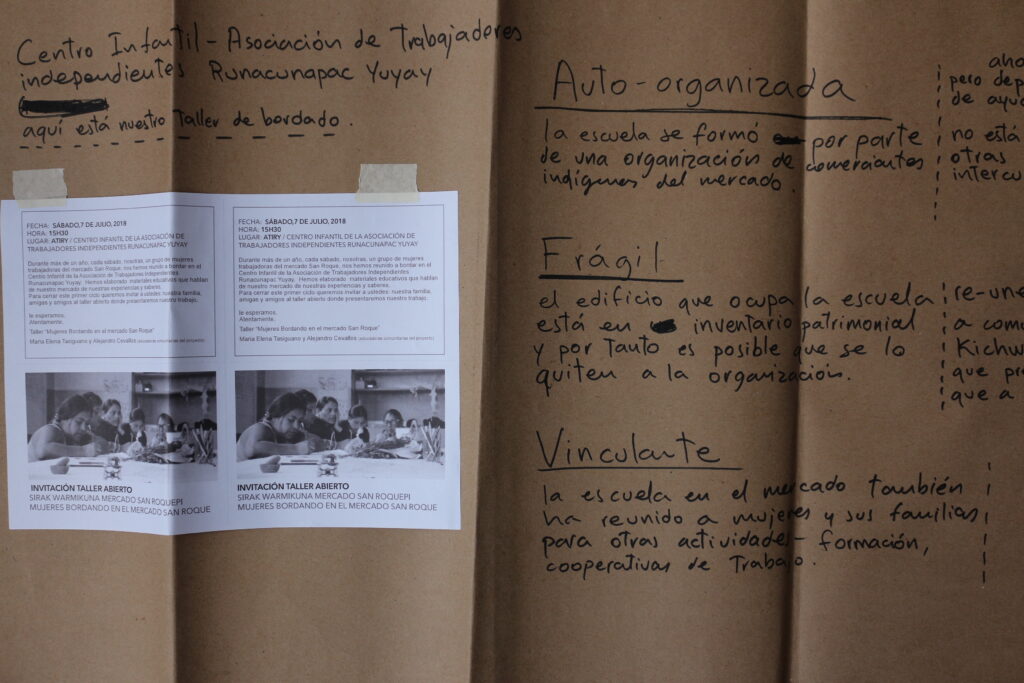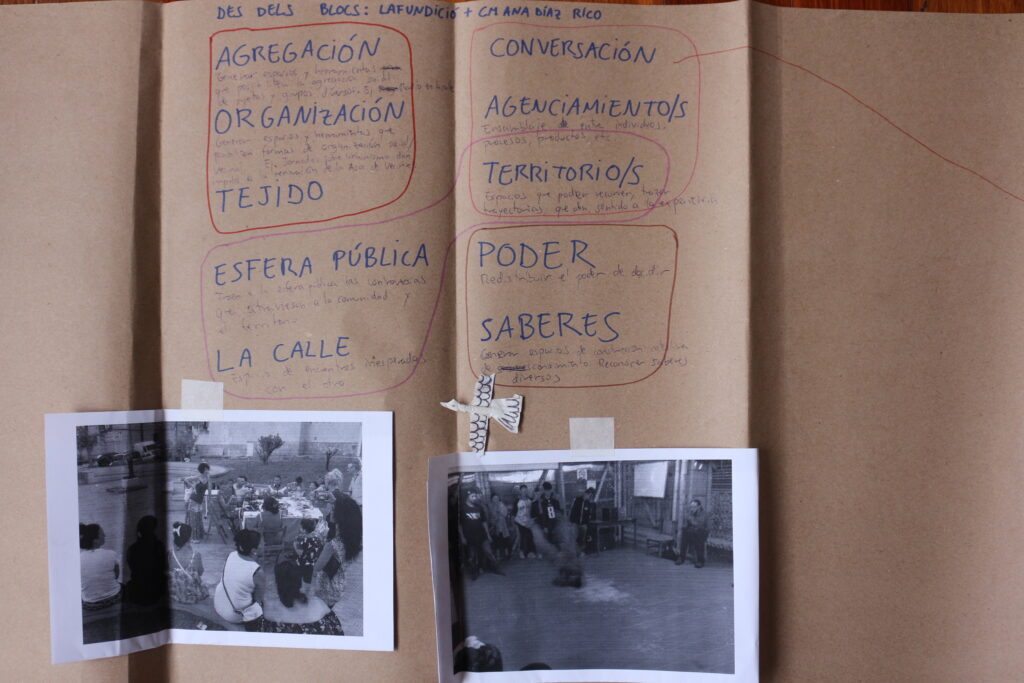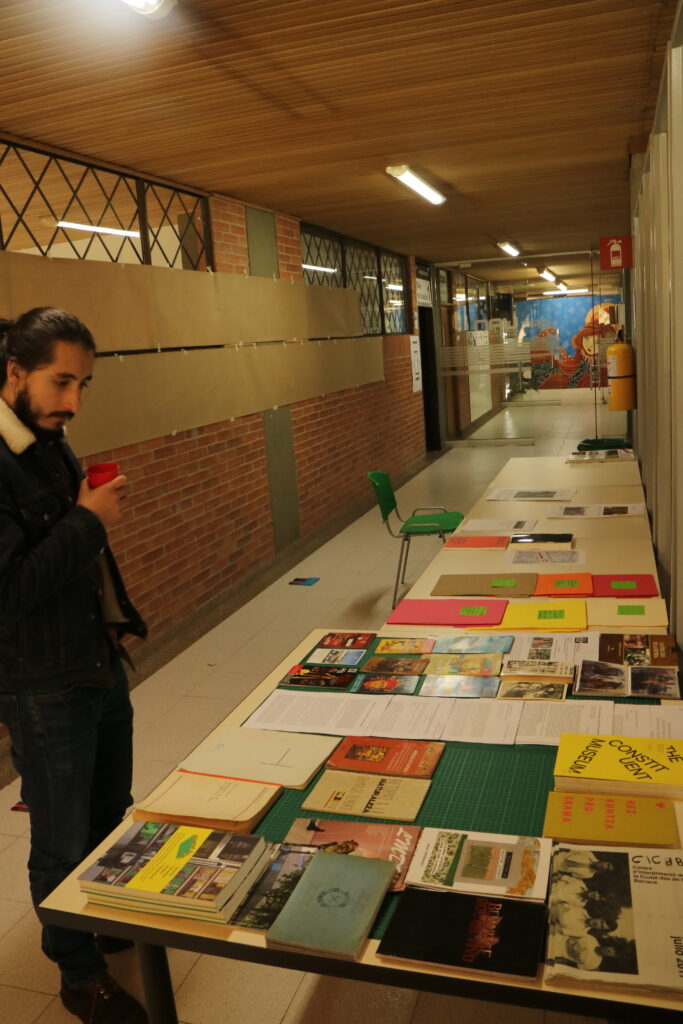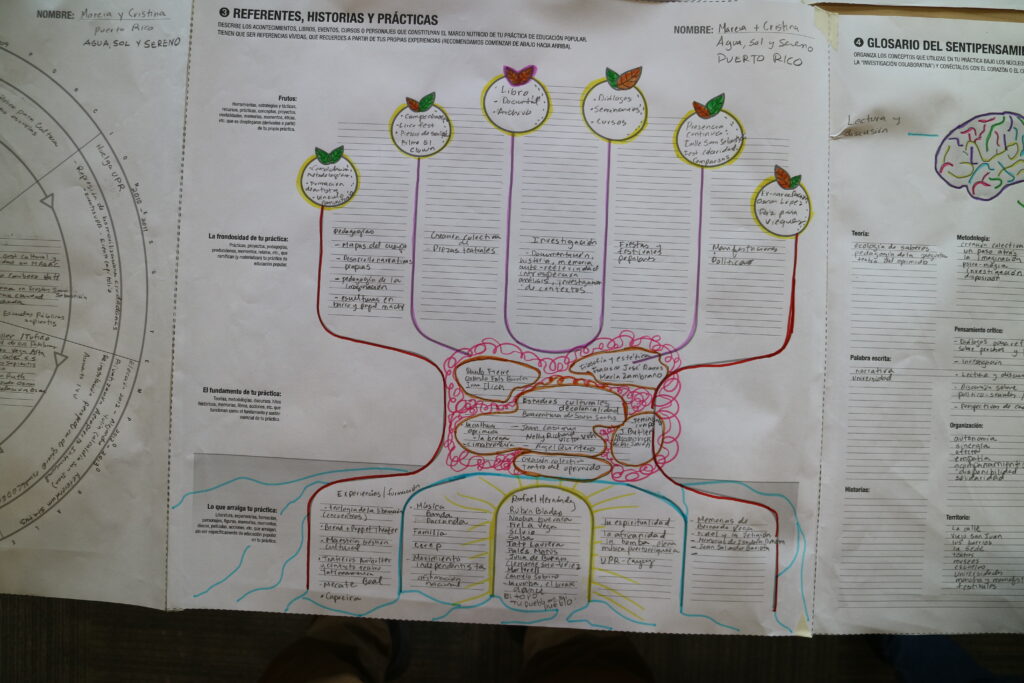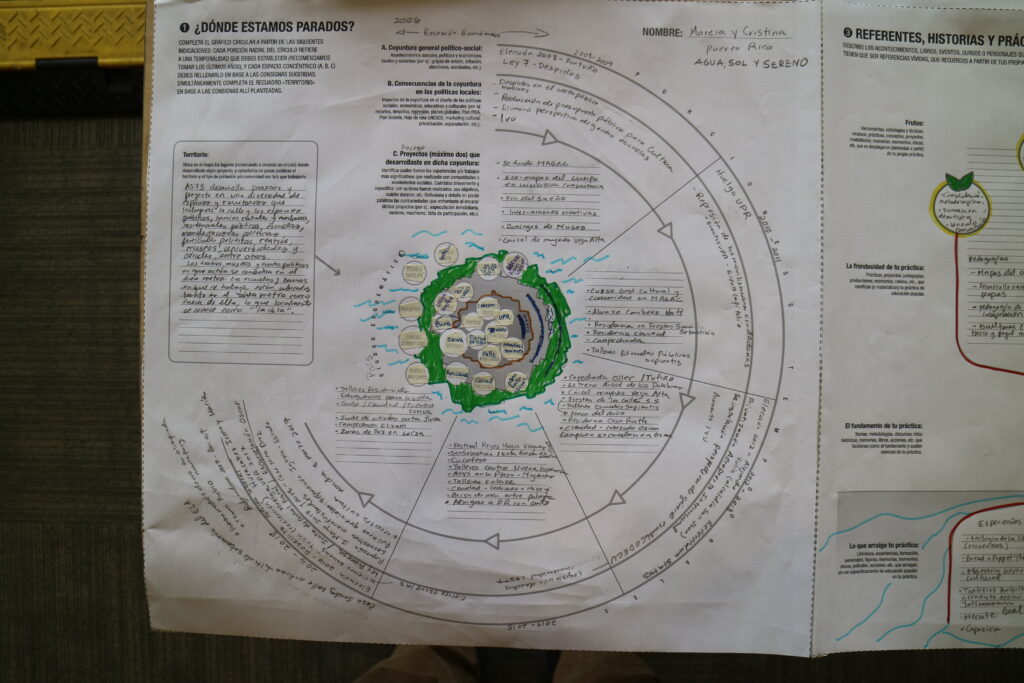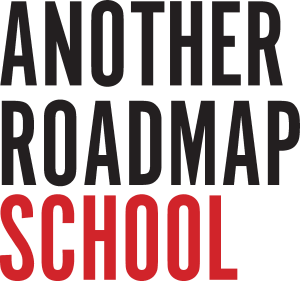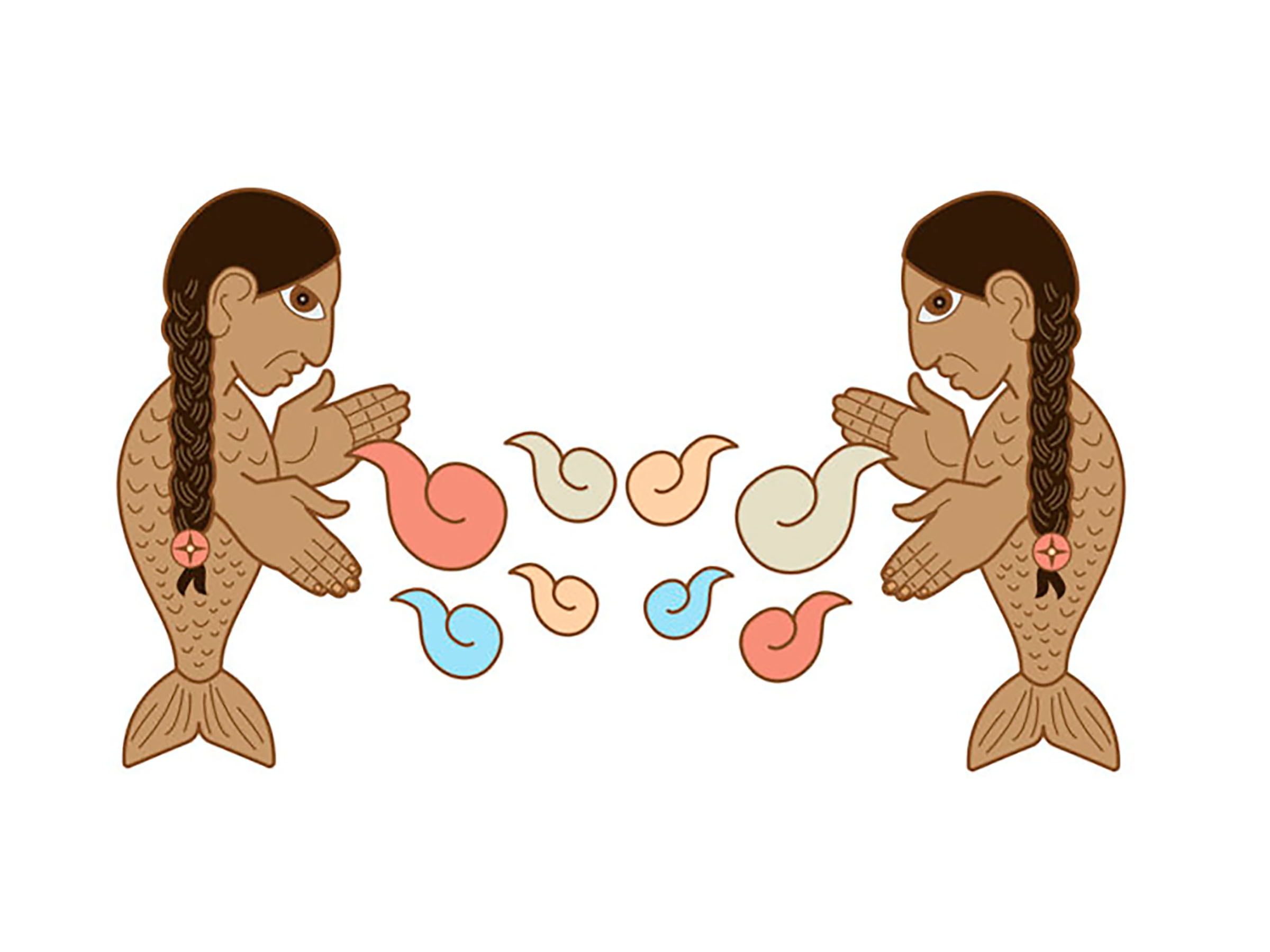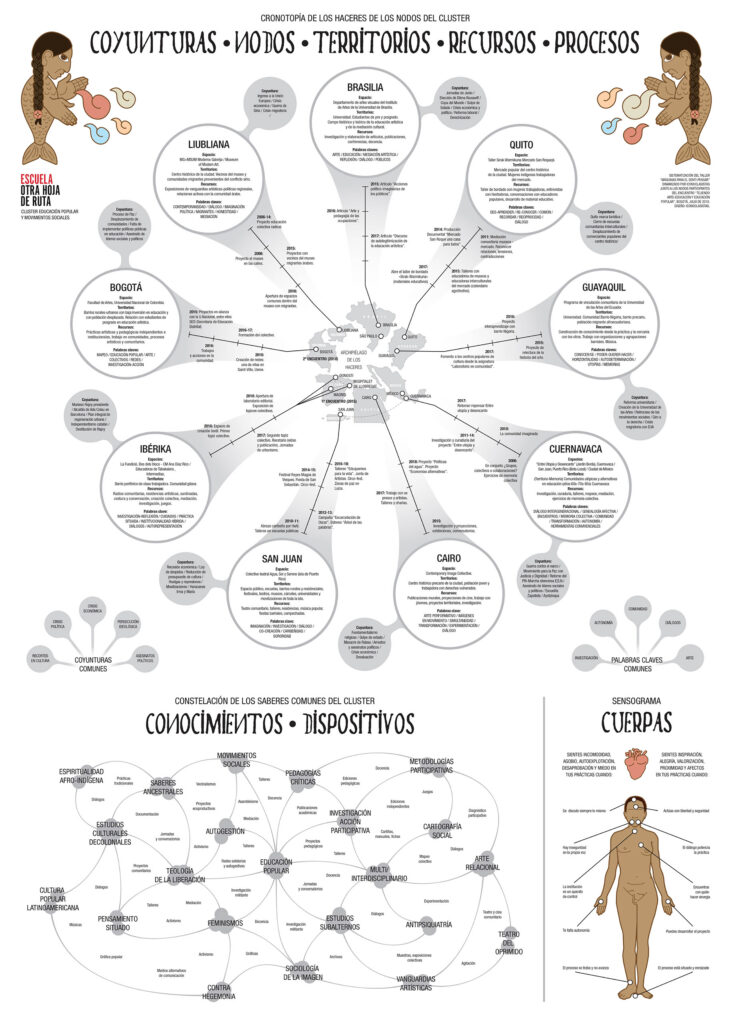
Working group: Quito, Bogotá, Cuernavaca, Sao Paulo
Authors workshop: Alejandro Cevallos; Sofía Olascoaga; Monica Romero; Cayo Honorato; Authors illustration and map design by Iconocasistas
#Popular education #undoing institutions

Workshop: Where do we stand?
We want to describe the place where our practice is rooted. We want to declare our position from which we speak about popular education. We want to make connections and imagine possible alliances between us as art educators and the social movements in our context.
Thanks to Julia Risler, we read this beautiful quote from Brazilian educator Frei Betto: “The head thinks where the feet tread.”
The popular education cluster designed this resource to map:
Stories of colonialism that still mark our context.
Ongoing social struggles (organized or mobilizing popular sectors).
Cultural policies in dispute.
Educational policies in dispute.
The relationship between economic/social policies and educational and cultural policies.
Relationships between socio-political events on a global, regional, and local scale.
We hope this diagram will help you draw a map of your position, time, and place.

Workshop: Undoing Institutions
We want to imagine how popular education and social movements could influence the arts education curriculum and the management of cultural institutions. We want to undo institutions, transform them, betray them, and rethink our relationship with them.
Choose a project you have carried out using resources or under the conditions of a cultural institution in your locality. Use this diagram to map the challenges and contradictions you have experienced and the feelings and thoughts they have produced in you and your body, between pleasure and displeasure, so that we can move towards preferred relationships.
With the diagrams you have made, discuss:
permeable, porous, soft moments in our institutions.
moments of contraction, regression, closure of possibilities in our institutions.
social movements that alter institutional structures in concrete ways.
contradictions, cases in which educational and community work ends up legitimizing and affirming the power of institutions without affecting their structure.
Possibilities for other ways of relating to institutions

Workshop: References, stories, and practices of popular education in different contexts.
We want to recognize our local references, discursive traditions, and practical experiences in popular education, community education, and indigenous education. We ask ourselves how these references are visible in our educational practice today.
Use this diagram to map references, discourses, practices, and strategies you have developed.

Workshop glossary of Sentipensamiento (feelings + thoughts)
We want to listen and share the words, concepts, and ideas we use in our own work and contexts. Between methodologies, policies, and work ethics, can these words contaminate the field of arts education?
Some images from the Popular Education Cluster meeting in Bogotá, 2018. You can see the full agenda for the meeting by clicking here.
